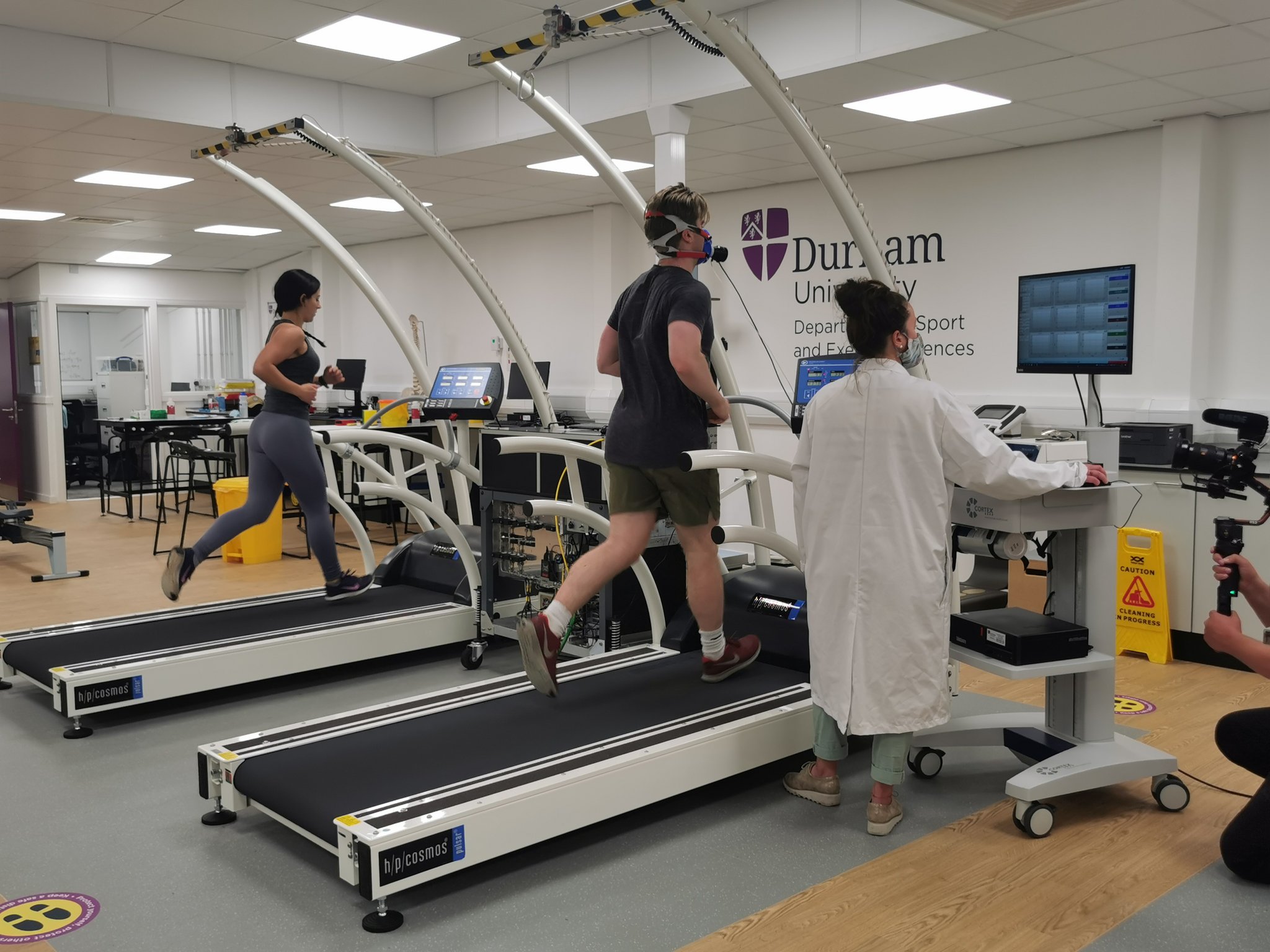Learn about our MSc in Physical Activity, Health and Society with Dr Katie Di Sebastiano

Ever wondered about what a MSc in Physical Activity, Health and Society is about? Find out more from an interview with PGT Programme Director, Dr Katie Di-Sebastiano.
We sat down with PGT Programme Director, Dr Katie Di-Sebastiano, to learn more about the MSc in Physical Activity, Health and Society. To read about the MSc from a student perspective, read Anthony’s blog post here.
What is the MSc in Physical Activity, Health and Society about?
The MSc aims to explore the physiological, psychological, social and political role of physical activity in society, as well as examining its impacts on health.
What would my day-to-day look like?
On any given day you will be attending lectures, workshops, and seminars, as well as laboratory sessions. So, it’s not that dissimilar from your undergraduate degrees. However, class sizes will be much smaller and so you’ll be able to work much more closely with your various instructors.
What will I study?
We have designed the programme to have academic rigor as well as flexibility. During the programme you will take four core modules that will include the dissertation module. You will also explore three further modules that look at exercise is medicine from critical perspectives, explore physical activity and health inequalities, as well as sporting policy and practice. Additionally, you’ll take some methods courses, which can be in both quantitative and qualitative methods, as well as a range of electives that you will get to choose from.
I see society in the title, is this a sociology degree?
No, this is not a sociology degree, this is a true social sciences degree, meaning you’ll be using multi-disciplinary perspectives to understand physical activity and its role in society, as well as its impacts on health.
Who will I be taught by?
The programme is taught across two departments, so you’ll be instructed by world-leading experts from both the Department of Sport and Exercise Sciences as well as the Department of Anthropology.
What are the skills I’ll develop during my degree?
The key skills you’ll develop during the programme are relationship building and collaborative working, persuasive and tactical communication, critical thinking and problem solving, as well as knowledge mobilisation and application.
What can I do with my degree?
This degree will prepare you for jobs in a variety of different areas, including physical activity promotion and policy-based settings. However, the skills you will acquire during this degree are highly transferable, meaning you’ll be able to work in subject-specific settings as well as transfer these skills to a variety of different sectors.
What is student life like as a postgraduate student at Durham University?
Our postgraduate students are fully embedded in both the academic and social life of the department. We encourage you to take part in as many activities as possible and build your experience to what you truly want it to be.
Who can apply?
This programme is open to a variety of different undergraduate degrees, meaning you don’t need an undergraduate degree in sport and exercise sciences to apply. You simply need an interest in physical activity, health and society!
To learn more about the programme, postgraduate open days, graduate destinations and how to apply, visit our course pages here.


/prod01/prodbucket01/media/durham-university/departments-/sport-and-exercise-sciences/sport/86041.jpg)
